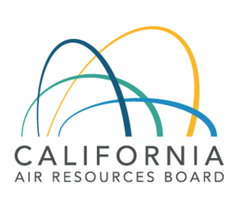CARB recently released final version of Proposed Amendments to the LCFS Regulation. These amendments, which impact how e-Forklifts can generate carbon credits along with many other updates, are the result of well over a year’s worth of workshop, public comment, data collection, and updated LCFS market modeling. CARB will take a vote on adopting the Proposed Amendments on March 21, 2024

Make your Voice Heard
PineSpire has summarized the key proposed updates below, and how they may impact your revenue. Public comments are accepted until February 20, 2024 for consideration of adoption of the proposed changes. PineSpire can facilitate preparing comments that specifically reflect your perspective and business experience – please contact us immediately to participate.
Key Proposed Amendments to LCFS Regulation
More rigorous Carbon Intensity standard
One of CARB’s primary goals is to bolster the value of LCFS credits and continue to make the LCFS program a meaningful incentive for electrification and other low-carbon solutions. The primary mechanism to support higher and more stable pricing is to tighten the Carbon Intensity standard which effectively increases the demand for LCFS credits. Additionally, CARB is proposing a mechanism that would automatically tighten the Carbon Intensity standard again in the future, should the market have an abundance of credits. These combined measures are key in supporting higher LCFS Credit pricing through higher demand, and providing more certainty in credit demand by removing the need for regulatory amendments to tighten the carbon intensity standard in the future.
PineSpire supports the Proposed updates to the Carbon Intensity standard and Auto-Acceleration Mechanism as key measures
50% Reduction of Credits and Metering for Forklifts
The Proposed Amendments will bring reporting for electric forklifts into sync with other types of electric vehicles by requiring that all energy use of forklifts is metered. The estimation method (i.e. calculation of energy usage based on forklift battery and charger specs and number of shifts operated) will no longer be accepted. Additionally, forklifts under 12,000lb capacity will generally create half as many credits per MWH of energy than under the current regulation. These changes by CARB is said to be a reflection of the current extent of e-forklift adoption in the market. These changes may decrease total revenue from e-forklifts but still allow for participation and improved fleet management data. Learn more about PineSpire’s cost-effective metering solutions. Your feedback about the time and resources required to implement metering and the impacts of these proposed changes are key information to provide to CARB.
PineSpire supports the intent to meter forklift energy usage however urges CARB to phase in this requirement over time to give businesses the necessary time to evaluate metering solutions and implement the necessary hardware. PineSpire does not support the reduction in credits for forklifts.
Forklift Operators get Credits over Forklift Owners
The updates propose that the entity operating the forklift will have the first right to credits, over the owner of the forklift. In rental scenarios, this would permit forklift renters to report credits. However, its not clear that businesses using rental forklifts will have the ability to meter their short term rentals, meaning that all parties could lose out on credits. PineSpire would appreciate hearing from you how this proposed change would affect your ability to create revenue.
PineSpire does not support changing forklift credits to the Operator over the Owner as it complicates or prohibits participation from rental forklifts without otherwise improving the LCFS program.
Truck Refrigeration Unit (aka TRU or Reefers) improvements
The latest updates to the program include a long-needed fix to how credits for TRUs can be generated. Under the proposed amendments, the facility that provides charging to electric TRUs can generate credits. This will enable facilities that are increasingly facing requirements to provide eTRU charging to capture economic. If your facility has eTRU chargers, please reach out to talk about how they can generate LCFS revenue for you in 2024.
PineSpire supports the proposed changes to eTRU registration and reporting to benefit the facility owners that are providing the eTRU charging.
Additional Updates
The Proposed Amendments cover many areas of the LCFS program from low carbon fuel creation, lifecycle carbon analysis, and reporting requirements. Two areas that may also be of value to PineSpire customers are 1) Enabling EV chargers at Multi-Family Residential developments to generate carbon credits, and 2) Enabling private owners of medium duty and heavy duty fleets to generate credits associated with installing the necessary charging infrastructure.
If you have questions about these or other proposed changes to the program, contact us for more details.
